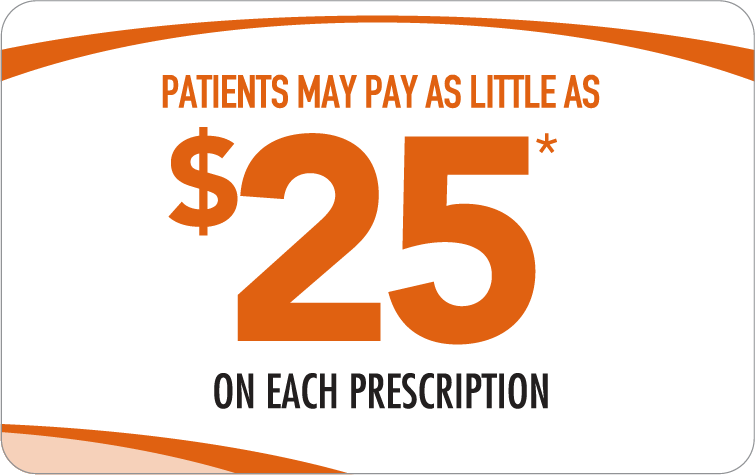What is the most important information I should know about QuilliChew ER?
QuilliChew® ER (methylphenidate HCI) is a federally controlled substance (CII) because it contains methylphenidate that can be a target for people who abuse prescription medicines or street drugs. QuilliChew ER has a high chance for abuse and misuse and may lead to substance use problems, including addiction. Keep QuilliChew ER in a safe place to prevent abuse and misuse. Never give your QuilliChew ER to anyone else, because it may cause death or harm them. Selling or giving away QuilliChew ER may harm others and is against the law.
Your healthcare provider should check you or your child’s risk for abuse, misuse, and addiction before starting treatment with QuilliChew ER and will monitor you or your child during treatment. Tell your physician if you, your child, or any family members have ever abused or been dependent on alcohol, prescription medicines, or street drugs.
QuilliChew ER should not be taken if you or your child are allergic to methylphenidate hydrochloride, or any of the ingredients in QuilliChew ER, or are taking or have taken within the past 14 days an antidepression medicine called a monoamine oxidase inhibitor or MAOI.
QuilliChew ER may cause serious side effects, including:
-
Risks for people with serious heart disease: Sudden death has happened in people who have heart defects or other serious heart disease. Before starting QuilliChew ER, tell your healthcare provider if you or your child have any heart problems, heart disease, or heart defects.
Call your healthcare provider or go to the nearest hospital emergency room right away if you or your child has any signs of heart problems such as chest pain, shortness of breath, or fainting during treatment with QuilliChew ER.
- Increase in blood pressure and heart rate.
Your healthcare provider should check your or your child’s blood pressure and heart rate regularly during treatment with QuilliChew ER.
-
Mental (psychiatric) problems, including new or worse behavior and thought problems, new or worse bipolar illness, new psychotic symptoms (such as hearing voices, or seeing or believing things that are not real) or new manic symptoms. Tell your healthcare provider about any mental problems you or your child have, or about a family history of suicide, bipolar illness, or depression. Call the doctor right away if there are any new or worsening mental symptoms during treatment.
QuilliChew ER may not be right for you or your child. Before starting QuilliChew ER tell your or your child’s health care provider about all health conditions including:
- heart problems, heart disease, heart defects, or high blood pressure
- mental problems including psychosis, mania, bipolar illness, or depression
- circulation problems in fingers and toes
- have eye problems, including increased pressure in your eye, glaucoma, or problems with your close-up vision (farsightedness)
- have or had repeated movements or sounds (tics) or Tourette’s syndrome, or have a family history of tics or Tourette’s syndrome
- phenylketonuria (PKU). QuilliChew ER extended-release chewable tablets contain phenylalanine as part of the artificial sweetener, aspartame. The artificial sweetener may be harmful to people with PKU or who are allergic to phenylalanine.
- if you are pregnant or plan to become pregnant. It is not known if QuilliChew ER will harm the unborn baby. There is a pregnancy registry for females who are exposed to QuilliChew ER during pregnancy. The purpose of the registry is to collect information about the health of females exposed to QuilliChew ER and their baby. If you or your child becomes pregnant during treatment with QuilliChew ER, talk to your healthcare provider about registering with the National Pregnancy Registry for Psychostimulants at 1-866-961-2388 or https://womensmentalhealth.org/clinical-and-research-programs/pregnancyregistry/othermedications/.
- if you are breastfeeding or plan to breast feed. QuilliChew ER passes into your breast milk. You and your healthcare provider should decide if you will take QuilliChew ER or breastfeed.
- Do not start any new medicine while taking QuilliChew ER without talking to your healthcare provider first.
What should I avoid while taking QuilliChew ER?
QuilliChew ER should not be taken with MAOI medicines or if you stopped taking an MAOI in the last 14 days. Do not drink alcohol while taking QuilliChew ER. This may cause a faster release of your methylphenidate dose.
QuilliChew ER may cause serious side effects, including:
- See “What is the most important information I should know about QuilliChew ER?” for information on reported heart and mental problems
Other serious side effects include:
- Circulation problems in fingers and toes (peripheral vasculopathy, including Raynaud’s phenomenon). Tell your healthcare provider if you or your child have numbness, pain, skin color change, or sensitivity to temperature in your fingers or toes.
Call the doctor right away if you or your child have any signs of unexplained wounds appearing on fingers or toes during treatment with QuilliChew ER.
- New or worsening tics or worsening Tourette’s syndrome. Tell your healthcare provider if you or your child get any new or worsening tics or worsening Tourette’s syndrome during treatment with QuilliChew ER.
- Painful and prolonged erections (priapism) have occurred with methylphenidate. If you or your child develop priapism seek medical help right away. Because priapism can cause long lasting damage, it should be checked by a health care provider right away.
- Slowing of growth (height and weight) in children. Children should have their height and weight checked often during treatment with QuilliChew ER. QuilliChew ER treatment may be stopped if your child is not gaining weight or height.
- Eye problems (increased pressure in the eye and glaucoma). Call your healthcare provider right away if you or your child develop changes in your vision or eye pain, swelling, or redness.
Most Common side effects QuilliChew ER include:
- Decreased appetite
- Trouble sleeping
- Nausea
- Vomiting
- Indigestion
- Stomach pain
- Weight loss
- Anxiety
- Dizziness
- Irritability
- Mood swings
- Fast heart beat
- Increased blood pressure
These are not all the possible side effects of QuilliChew ER.




